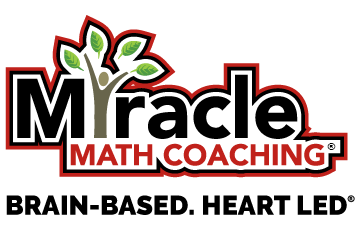5 More Ways Smart Parents Prepare their Child for the New School Year
There can never be too much advice for how to begin the school year right. Add these ideas to your list of getting your child off to a good start.
- Contact your child’s teacher early.
Getting good grades takes hard work and discipline, and it doesn’t hurt to get on the good side of the person who teaches your child. Many schools give students the names of their classes and teachers for the following fall classes at the end of the school year.
Finding teachers’ email addresses might prove a challenge, but you can send snail mail to the school’s physical address. Send a note or a card a week or so before school starts introducing yourself and your child. Let the teacher know that you intend to do whatever you can to help your child do well in class. Also, convey that you want to be informed about progress and behavior – whether good or bad.
- Review the Common Core Standards for your child’s grade level.
The Common Core is a set of national standards that dictate what students should know at each grade level. This is the material your child will be taught and expected to master by the end of the school year. By reviewing the subject matter ahead of time, you can get a jump start on topics that might be challenging.
Though each state’s Common Core Standards are slightly different, here’s a website that gives you the basics of what your child should be learning. http://www.corestandards.org/read-the-standards/ Click on the golden boxes on topics on the right side of the homepage.
If your child needs support in any subject, the internet is a great place to start looking for worksheets or handouts that can help. For example, if your son or daughter has trouble with fractions, there are excellent age-appropriate YouTube videos for helping with fractions. Also, remember that Miracle Math Coaching specializes in helping students master the Common Core. Check us out at www.miraclemathcoaching.com
- Prepare for homework ahead of time.
It’s never too early to set up a separate area for homework. For example, designate the dining room table or a corner of a bedroom. The only rule is that it be a distraction-free zone. That means it’s quiet, and there are no phones, television, stereo, or videogames. And determine with your child what time he or she will begin homework each day.
Also, have a timer nearby. You can use to keep your student focused. Allocate a set amount of time to a reading assignment or a list of spelling words. It could be five minutes for young students and 20 minutes for older ones. When the timer bings, have them get up and stretch or do jumping jacks. Exercise is good for keeping the mental juices flowing.
- Establish a bedtime routine that ensures your child gets enough sleep.
According to the website Kids Health, children between the ages of five and 12 aren’t getting enough sleep. They average about 9.5 hours a night when they need 10 to 11 hours.
Children who get enough sleep find it easier to learn, listen, concentrate and solve problems than those who don’t get enough sleep. It’ll make a huge difference in how well your child does in class. Check out these sleep tips for children from the Sleep Foundation:
- Emphasize need for regular and consistent sleep schedule and bedtime routine.
- Make child’s bedroom conducive to sleep – dark, cool and quiet.
- Keep TV and computers out of the bedroom.
- Avoid caffeine (no colas!)
- Make sure you have school supplies.
Now’s the time to catch back-to-school sales for school supplies. Here’s a general list of what your child might need:
- 3-ring binder
- Backpack
- Eraser
- Glue stick
- Graph paper
- Highlighters
- Markers
- Paper clips
- Pens/pencils
- Pencil sharpener
- Pocket dictionary and thesaurus
- Pocket folders
- Ream of computer paper
- Scissors
- Spiral notebook
- Stapler
What ways are you getting your child ready for school?







